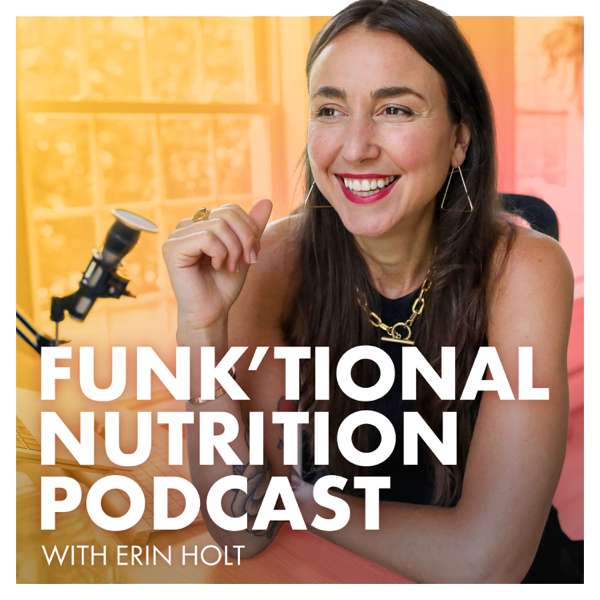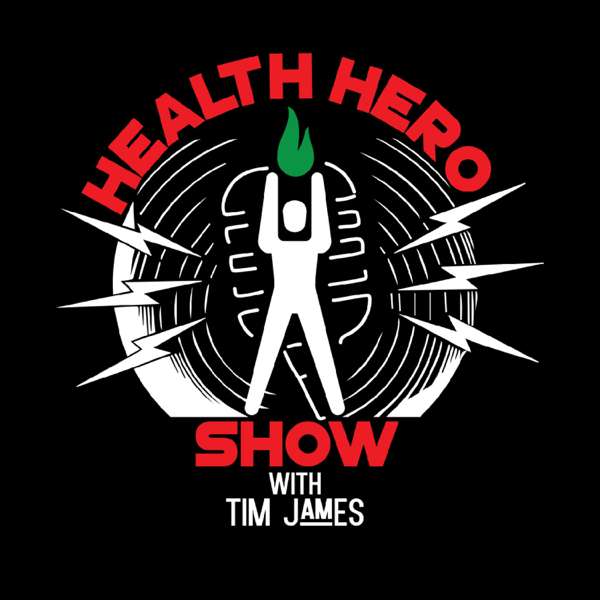On this episode of The Keto Kamp podcast we discuss the relationship between fasting, keto, and brain function.
You will be amazed when you discover how ketones and fasting super charge your brain top perform at a top level.
This episode is sponsored by my favorite olive oil, the Fresh Pressed Olive Oil Club. Try them for $1.00 www.ketokampolive.com
The 4 key foods to stimulate neurogenesis:
1) Blueberries. I have blueberries just about every single day, and I recommend it to my clients. Not only is it low in sugar compared to other fruits, it is also packed full of antioxidants. Blueberries act in so many ways to promote neurogenesis and protect the brain from cognitive decline.
Numerous studies show adding blueberries to the daily diet of mice increases neurogenesis significantly.
Casadesus, G., Shukitt-Hale, B., Stellwagen, H.M., et al. (Oct 2004). “Modulation of hippocampal plasticity and cognitive behavior by short-term blueberry supplementation in aged rats.” Nutritional Neuroscience. 7(5-6):309-16.
Acosta, S., Jernberg, J., Sanberg, C.D., Sanberg, P.R., Small, B.J., Gemma, C., Bickford, P.C. (Oct 2010). Rejuvenation Res. 13 (5):581-8. doi 10.1089/rej.1011. Epub 29 Jun 2010.
Joseph, J.A., Shukitt-Hale, B., Lau, F. C. “Fruit polyphenols and their effects on neuronal signaling and behavior in senescence.” Annals of the New York Academy of Sciences.
Consuming about 1 cup per day is the equivalent human portion that animal studies have suggested. Here’s a bonus tip, buy wild organic frozen blueberries. New research from South Dakota State University [https://www.sciencedaily.com/releases/2014/07/1
722124810.htm] suggests that frozen blueberries deliver a bigger dose of disease-fighting antioxidants than fresh.
These antioxidants come from compounds called anthocyanins, which give blueberries their purple hue. The ice crystals that form when the berries are frozen disrupt the structure of the plant tissue and make anthocyanins more available. The anthocyanin dye, which causes the dark blue color, crosses the blood-brain barrier to stimulate neurogenesis. [Page 61]
Humans with cognitive decline showed improvements after consuming blueberries daily.
Devore. E. E., Kang, J.H., Bretellen, M. M., Grodstein, F. A. (July 2012). “Dietary intakes of berries and flavonoids in relation to cognitive decline.” Neurology. 72(1):135-43. Doi: 10.1002/ana.23594. Epub 26 Apr 2012.
Joseph, J.A., Shukitt-Hale, B., Willis, L. M. (Sep 2009). “Grape juice, berries, and walnuts affect brain aging and behavior.” Journal of Nutrition. 139(9):1813S-7S. Doi: 10.3945/jn.109.108266. Epub 29 Jul 2099. Review.
Aside from increasing neurogenesis, blueberries allow better communication among neurons, something called signal transduction. [Page 62]
Studies have shown that blueberry extracts are as effective as fresh blueberries.[page 62] In most animal studies it’s the extract that is used. This makes daily blueberry intake possible for those who don’t have access to fresh blueberries. Life Extension makes a great blueberry extract product.
2) Omega 3s. Another neurogenesis superstar is the complex of omega-3 fatty acids, found in abundance in cold water fish, including wild Alaskin salmon, coho and sockeye salmon, black cod, sablefish, sardines, and herrings. Omega-3s have been shown to dramatically increase neurogenesis and BDNF Levels. [Page 62]
Neuroscience researcher Sandrine Thuret, Ph.D., of London’s Kings College, reported a 40% increase in neurogenesis by adding omega-3’s in Science Daily in 2007. Other studies have shown impressive results in neurogenesis, elevated BDNF levels, increased in brain size, and neuroprotective benefits from omega-3s.
Conklin, S.M., Gianaros, P.J., Brown, S.M., et al. (29 June 2007). “Long-chain omega-3 fatty acid intake is associated positively with corticolimbic gray matter volume in healthy adults.” Neuroscience Letters. 421(3):209-12
Beltz, B. S., Tlusty, M. F., Benton, J. L., Sandeman, D. C. (2007). “Omega-3 fatty acids up regulate adult neurogenesis.” Neurogenesis Letters.
Zainuddin, M. S. A., & Thuret, S. (2012). “Nutrition, adult and hippocampal neurogenesis and mental health.” British Medical Bulletien. 103, 1, p.89-114. DOI:10.1093/bmb/Ids021.
Our brains are made up of about 60% fat; this is where the term “fathead” came from. The next time someone calls you a fathead, say thank you. DHA, one of the most important of the omega-3s, constitutes about 30% of the brains cerebral cortex.
Jockers. D. (2012). “Is your brain getting enough of this nutrient?” NaturalNews.com. (11/05/2012).
When you consume high quality fats you are continuously rebuilding your brains’ cellular structure. Omega-3s are the highest quality fats for brain development.
3) Green Tea. Green tea contains polyphenols, the most powerful of which is epigallocatechin gallate (EGCG), a type of catechin. Green tea’s polyphenols have been shown to increase neurogenesis, BDNF levels, and to have strong health benefits ranging from cancer prevention to fat loss, plus cardiovascular benefits, immunity improvement, and glucose reduction.
(Aug 2012). Molecular Nutrition & Food Research. 56(8):1292-303. doi: 10.1002/mnfr.201200035. Epub 13 Jun 2012.
Wang, Y., Li, M., Xu, X., Song, M., Tao, H., Bai, Y. “Green Tea epigallocatechin-3-gallate (EGCG) promises neural progenitor cell proliferation and sonic hedgehog pathway activation during adult hippocampal neurogenesis.”
Goepp, J. (Apr 2008). “New research on the benefits of green tea.” Life Extension.
Yoo, K.Y., Choi, J. H., Hwang, I. K., Lee, C. H., Lee, S. O., Han, S. M., Shin, H. C., Kang, I. J., Won, M. H. (July 2010). “Epigallocatechin-3-gallate increases cell proliferation and neuroblasts in the subgranular zone of the dentate gyrus in adult mice.” Phytotherapy Research. 24(7):1065-70. doi: 10.1002/ptr.3083.
Green tea has clear cognitive benefits and even improves working memory, which is one of the most difficult functions to increase.
Borgwardt, S., Hammann, F., Scheffler, K., Kreuter, M., Drewe, J., Beglinger, C. (Nov 2012). “Neural effects of green tea extract on dorsolateral prefrontal cortex. European Journal of Clinical Nutrition. 66(11):1187-92.
Look for extracts standardized to at least 40% polyphenols, or even better, 98% polyphenols with 75% catechin and 45% ECGC. [Page 65]
Keep in mind that green tea does have caffeine, so ideally you want to have it before 2pm, any later may interfere with quality of sleep.
4. Circumin. Circumin provides the yellow color in the curry spice turmeric. It has strong neurogenic effects. In addition it is a powerful anti-inflammatory and antioxidant compound. Aging populations who consume circumin show better cognitive performance.
Kim, S.K., Son, T. G., Park, H. R., Park, M., Kim, M. S., Kim, H. S., Chung, H. Y., Mattson, M. P., Lee, J. (23 May 2008). “Circumin stimulates proliferation of embryonic neural progenitor cells and neurogenesis in the adult hippocampus.” Journal of Biological Chemistry. 283(21):14497-505. doi: 10.1074/jbc.M708373200. Epub 24 Mar 2008.
Ng, T. P., Chiam, P. C., Lee, T., Chua, H. C., Lim, L., Kua, E. H. (1 Nov 2006). “Curry consumption and cognitive function in the elderly.” American Journal of Epidemiology. 164(9):898-906. Epub 26 Jul 2006.
Circumin is notoriously known to be poorly absorbed; you can enhance it by adding it to fat and/or adding piperine (black pepper extract).
// R E S O U R C E S
Thomas DeLauer's YouTube Channel: https://www.youtube.com/user/TheTdelauer
Head Strong by Dave Asprey:
https://amzn.to/2kyBafb Exercise & Then Brain by John Ratey:
https://amzn.to/2kyWv8g The Neurogenesis Diet & Lifestyle by Brant Cortright:
https://amzn.to/2lSpfJq TEDx Talk by Mark Mattson on Fasting:
https://www.youtube.com/watch?v=4UkZAwKoCP8 My Favorite Blueberry Extract Supplement:
https://amzn.to/2kgfowm Pique Green Tea:
https://amzn.to/2kL9nrF Get my FREE Keto Kickstart Guide:
http://www.ketokickstartguide.com YouTube Channel: www.youtube.com/ketokamp
This podcast is for information purposes only. Statements and views expressed on this podcast are not medical advice. This podcast including Ben Azadi disclaim responsibility from any possible adverse effects from the use of information contained herein. Opinions of guests are their own, and this podcast does not accept responsibility of statements made by guests. This podcast does not make any representations or warranties about guests qualifications or credibility. Individuals on this podcast may have a direct or non-direct interest in products or services referred to herein. If you think you have a medical problem, consult a licensed physician.

 Our TOPPODCAST Picks
Our TOPPODCAST Picks  Stay Connected
Stay Connected







